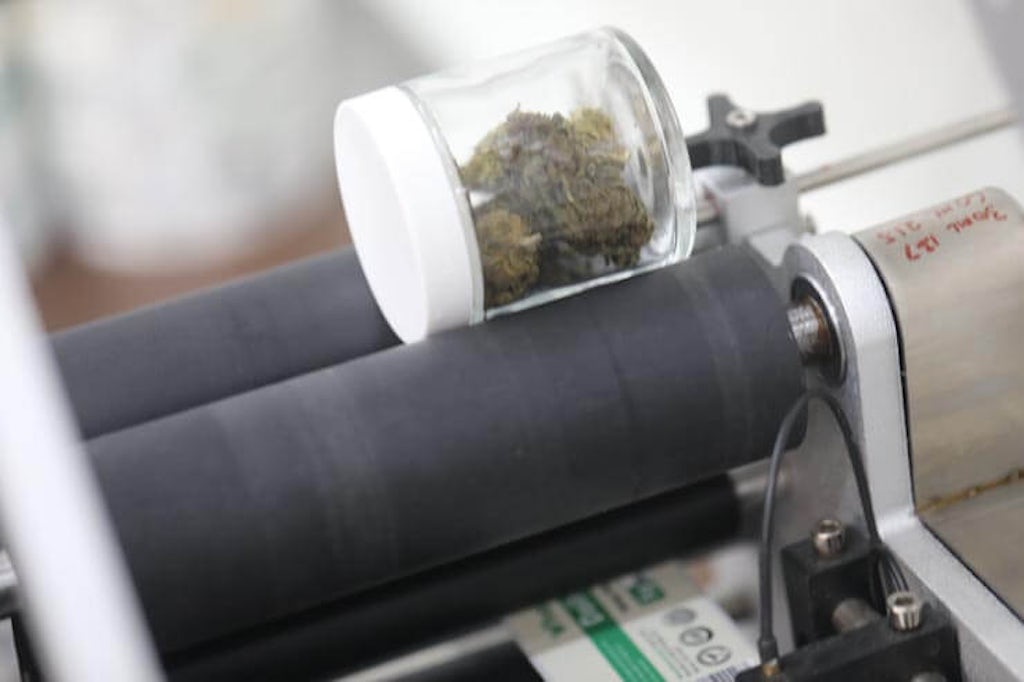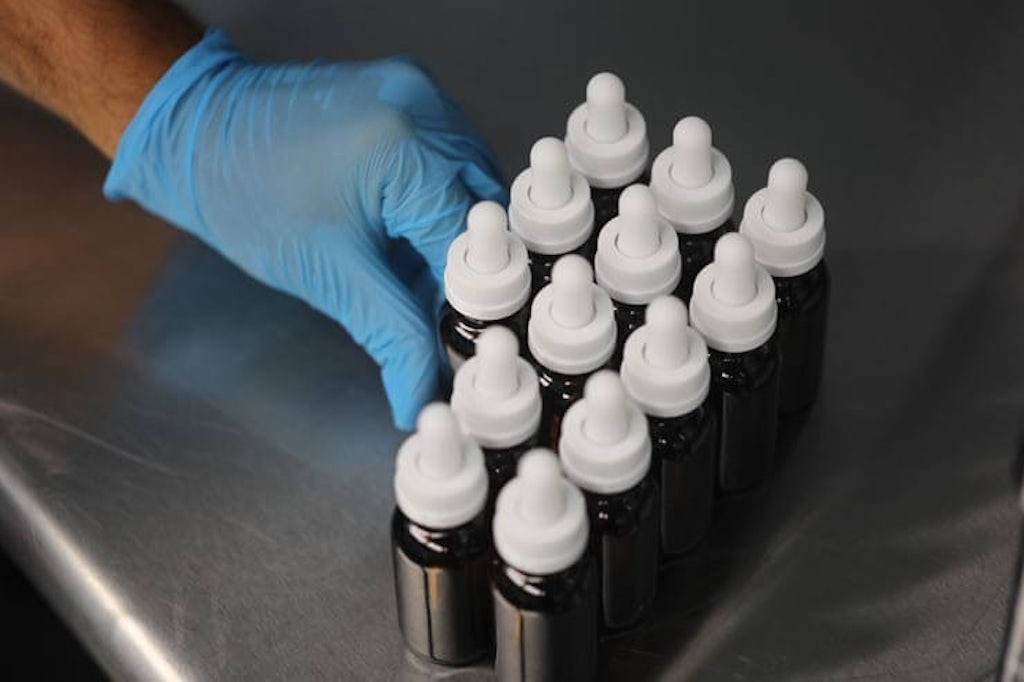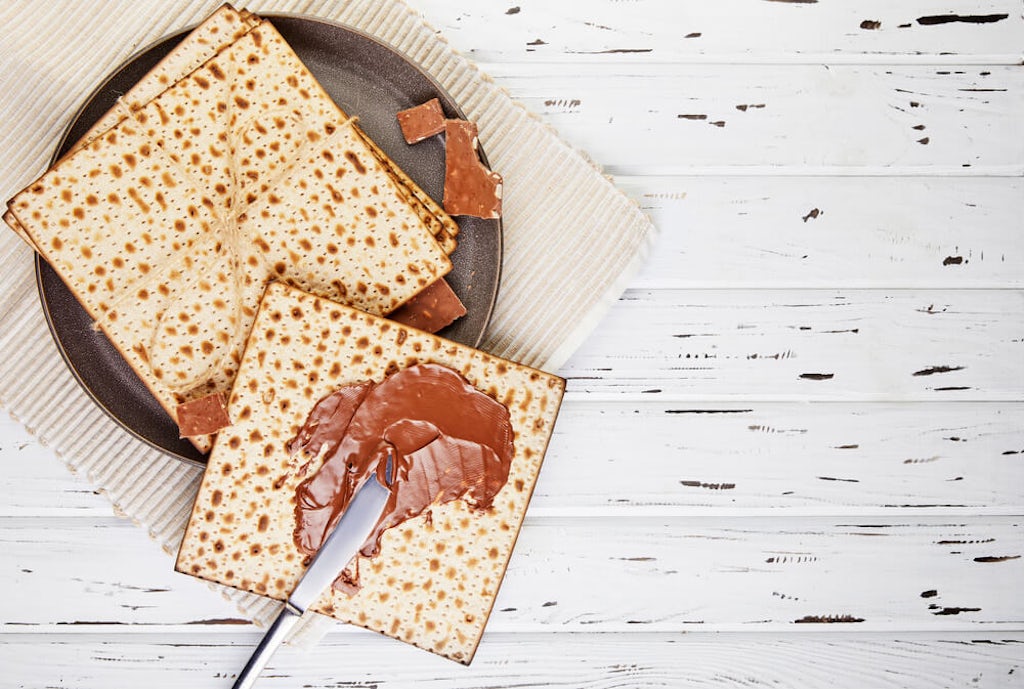It’s almost that time of the year again — when Jews try to explain to their non-Jewish friends and loved ones such interesting questions as “what is matzah?,” “why can’t you drink beer this week?,” and “when do we get to eat?”
The Passover seder is a timeless, beautiful tradition that celebrates freedom, divine retribution, unleavened bread, the fluid dynamics of the Red Sea, and getting together with family. It is also, like most Jewish holidays, one that is defined largely by an abundance of food.
This is one reason many people like to be high during the seder, and why you may ask yourself, is cannabis kosher for Passover?
What is Passover and what is ‘kosher for Passover’?

Passover (“Pesach“) is a Jewish holiday that commemorates the deliverance of the Hebrew slaves of Egypt, as told in the book of Exodus and the 1956 Cecil B. DeMille film “The Ten Commandments.”
As the story goes, when Moses (Charlton Heston, to some people) led the Israelites out of Egypt towards the Promised Land, the pharaoh and his charioted soldiers were hot on their trail, leaving them no time to wait for their bread to rise. Instead, they had to eat flat, unleavened bread. At the Passover seder — and in the week following — Jews traditionally commemorate this by eating matzah, an unleavened flat bread typically sold in square sheets.
During the week of Passover, it is forbidden to eat any leavened bread, as well as any foods made with leavening agents. Taken together, these are what are known as chametz. Chametz includes risen bread, but also pasta, beer, whiskey, and for many Jews, corn and corn-based products.
Food that is free of any and all chametz can be certified “Kosher for Passover,” and in an observant Jewish household, only kosher for Passover items can be served during the holiday. Like with the laws regulating what is kosher (“kashrut”), there is also a matter of cross-contamination of sorts.
For instance, just as chicken can be kosher, if it was served on a plate or prepared in a dish with pork, then it is not kosher (“treif”). The same goes for unleavened products — if they have any traces of chametz on them, they’re a no-go during Passover.
But forget all that, what about weed?
(Almost) all cannabis is kosher for Passover

Israeli Rabbi Chaim Kanievsky, arguably the most influential leader in the ultra-Orthodox Jewish world, issued a ruling in 2016 that marijuana is indeed kosher for Passover and can be consumed throughout the holiday — for medical purposes.
This echoes previous statements made by rabbinical leaders that consuming the plant is kosher — even a mitzvah (“commandment,” but colloquially used to mean “a good deed”) if used to relieve pain — though there is some disagreement over whether or not using cannabis to get high is allowed.
Overall, the laws of kashrut and those of Passover can be confusing even if you grew up in a Jewish household, but with cannabis, it’s much simpler.
Cannabis flower is a natural plant and is thus almost automatically kosher. It contains no animal products from non-kosher animals nor does the plant itself contain any mixture of milk and meat (a big no-no). It is simply a plant, and thus does not need special certification, just like a cucumber, tea leaves, or basil.
That said, many more strenuous observers of kashrut look for a special certification on vegetables such as lettuce, to indicate that it has been washed thoroughly in order to remove all insects. So if you plan to eat cannabis, you’ll need to make sure it is clear of any insects first.
Unkosher cannabis?

Where things get a bit complicated is when cannabis is processed.
Cannabis that has been processed to make THC gummies or CBD chocolates can be unkosher if the machines used to make it also processed unkosher food, or if they are made in a facility that does not receive any kosher supervision.
Things can get more complicated from there. Cannabis concentrates made with an ethanol extraction must use ethanol from kosher grapes in order to be kosher.
Furthermore, the presence of animal-derived whey and gelatin (used as a thickening agent in gummies) are generally forbidden for people who keep kosher.
What cannabis products are kosher for Passover?
Cannabis products that are made without any leavened bread or non-kosher additives (like gelatin, or obviously, pork or shellfish) can be considered kosher for Passover. That said, the company in question may have not invested in receiving kosher for Passover certification, so if you need the official seal of approval, that could be a problem.
Look for products that don’t have leavening agents in them — such as yeast or sourdough — or grains that (wheat, braley, spelt, rye, or oat) that have gone through a fermentation process (this is why beer is, sadly, chametz).
Simple items like cannabis candies or chocolates are likely to fit the bill, though you’ll want to pay close attention to the additives on the ingredients list.
Rabbi Yaakov Cohen of Whole Kosher, a company that provides kosher certification for cannabis products, told The Cannigma this week that there is no kosher for Passover concern with cannabis flower and oils — other than the issue of ethanol extraction. Ethanol can be derived from wheat, which is prohibited on Passover.
When it comes to other products “all have ingredient or equipment issues which make them not kosher for Passover,” he said.
Unkosher vape pens?

In a blog post this week, Rabbi Cohen wrote that in general vape pens don’t present a kosher for Passover concern because they are inhaled and not ingested — but the flavors added to them can present a potential problem.
Flavors that are mixed or infused into foods need kosher certification, and grape flavor is one of the most concerning.
And regarding the manufacturing process in general, Cohen wrote that “a very classic problem occurs when food items are produced on equipment which has been contaminated with non-kosher ingredients. This happens very often within co-packing and co-manufacturing facilities.”
He wrote that he recommends cannabis oils that use an olive oil base and not MCT or a flavored base, because it would have the least likelihood of containing chametz.
How to spice up your seder plate
So what can you do if you want to consume cannabis during the seder and the rest of the Passover week?
You can smoke your cannabis (and no, Kosher Kush is not any more kosher than other strains, it’s just a name) of course, but there is also a wide variety of edibles that can work.
If you have a cannabis oil that you made using utensils that were clean of any chametz then you can add some to whatever you’re serving at or after the seder — though you should definitely tell your guests before you put cannabis oil in the matzo ball soup or the chraimeh.
You can also add cannabutter to your food, though if there is any meat on the table this will be a violation of the year-round rules of kashrut.
Speaking of cannabutter, one of the better Passover snacks during the week of no bread is a square of matzah with a nice smear of butter, cream cheese, or even chocolate paste. You see where we’re going here. Try it with cannabutter, and you may find your a newfound defender of the culinary delights of matzah.

You could also use the matzah as a base for a single-serving edible such as cannabis “firecrackers,” which require nothing more than a piece of matzah, a fat-based spread (such as peanut butter or Nutella) and some decarboxylated cannabis to sprinkle on top.
For a holiday in which leaning back in your chair and relaxing is a commandment, the addition of a nice dose of THC to your meal can really go hand-in-hand.
Whether or not you spend the next 40 years wandering the desert is up to you.
Sign up for bi-weekly updates, packed full of cannabis education, recipes, and tips. Your inbox will love it.

 Shop
Shop Support
Support
















